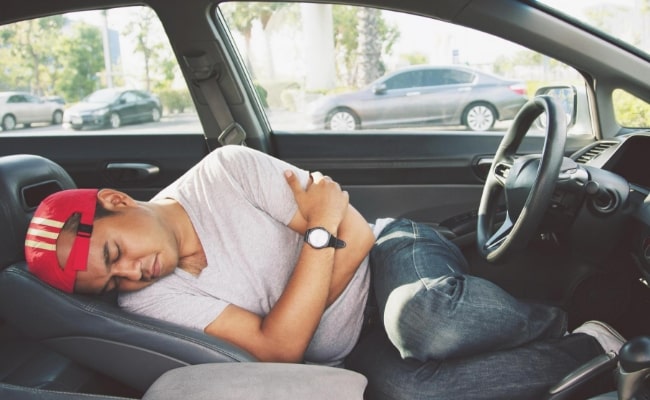After an evening out, some individuals choose to sleep in their vehicle after driving safely home, thinking they are making the responsible choice. Unfortunately, if a police officer observes them while impaired and believes they have committed DUI they could face legal ramifications.
Police often examine key elements, like where you are sitting in your vehicle and whether keys are present, to establish whether you intend to drive. Knowing some effective legal defense strategies could help you ward off conviction.
1. You’re in the driver’s seat
New York DUI laws make it illegal to operate a vehicle while under the influence of alcohol, and police can charge people even when the car isn’t moving if their intent was to drive at some point in time, such as holding onto keys or sitting in driver’s seat. Therefore, if planning on sleeping in your parked car after drinking all night long it would be best if possible that sleeping arrangements don’t include sleeping directly on driver seat.
If you must sleep in your vehicle after an evening of partying, ensure it is legally parked away from traffic and set it as far back from you as possible. Furthermore, place the keys somewhere besides yourself so as to reduce chances of police arrest if spotted.
Even though drowsy driving may endanger lives, it isn’t illegal in itself. But if you become too fatigued to safely operate a vehicle and nonetheless make the choice to do it anyway, any injuries or deaths caused could fall upon you personally if they occur as a result of that decision. For your own safety it may be prudent to call an Uber service or designate one in advance after consuming alcohol – calling an Uber can provide peace of mind!
2. You’re in the ignition
Although it may seem simple, one sure way to avoid getting pulled over for DUI after a night out is simply not driving – but this won’t protect you in Colorado Springs and El Paso County from unexpected DUI arrest. Your actions must be seen as evidence of intent to operate even though your car is parked; key indicators here are ignition/start button presence/useability as well as key proximity/reach ability (the further away the keys are from each other and harder they are for you to reach), the higher your odds are of avoiding an unexpected DUI charge!
Your attorney may use factors like where your vehicle was parked and stored, the distance it can travel before reaching its driver seat, and any evidence of impairment as grounds to argue that you weren’t actually controlling it at that moment in time. Challenging this interpretation of law by asserting alternative modes of transportation such as ride sharing or designating someone to drive for you can help strengthen your case.
Sleeping it off in your car may not be an effective DUI defense, but following these simple tips may reduce your risk of arrest: park in a safe location and ensure that it is locked. Furthermore, keep keys out of reach or give them to a sober friend if possible.
3. You’re in a parking lot
Commonly seen after an evening of drinking is when the drunk driver decides to retreat to their vehicle to rest before heading home – such as after leaving a bar or club – rather than disturb friends and family and get an Uber or Lyft ride home – without realizing this can be dangerous as police could still arrest them for DUI even though they’re no longer driving!
Reason being, just the presence of someone sitting in the driver’s seat, proximity of a key in reach or near them and warm engine or tire temperatures can all be seen as indicators that they intend to drive. Indeed, police officers have even been known to wait outside bars in order to catch intoxicated drivers heading towards their cars before arresting them before taking off.
Thankfully, the law isn’t as severe as it might appear; an experienced criminal defense lawyer can create reasonable doubt that an individual intended to drive, thus allowing them to avoid conviction. One way of doing this would be demonstrating that keys were found somewhere other than in their ignition or on someone’s body when sleeping instead of inside their car.
4. You’re in a driveway
Police can still charge someone with DUI even when they’re inside their parked vehicle, provided that they suspect them of intoxication. Police may look for clues such as where it’s parked, if its engine is running or keys are nearby and how much alcohol there is inside to determine whether to arrest you. It is wise to park away from public roads and areas as this will decrease chances of arrest for DUI charges.
People commonly associate DUI laws with arresting those driving while impaired behind the wheel of their vehicles. But because the language surrounding DUI laws is somewhat ambiguous and opens the door for arrest even while sitting still, people could potentially be targeted even while sitting idle in a parked car if anyone “operates” them while impaired.
Operating is a broad term, and can include actions other than driving. For instance, NY Veh & Trf L SS1192 stipulates that it is illegal to operate any motor vehicle while under the influence of intoxicating substances or drugs – this includes being in the driver’s seat, having keys in your possession or having an engine functioning properly.
